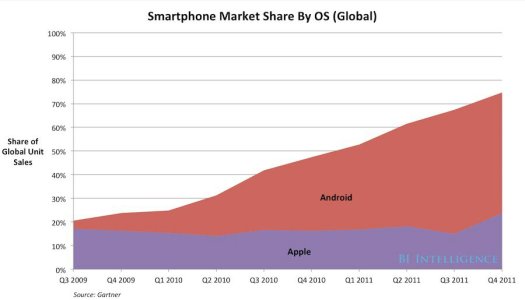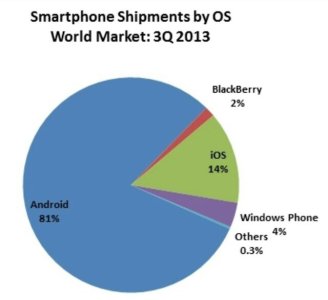JeffDenver
Banned
- May 3, 2010
- 2,998
- 27
- 0
Quote from that article:
"In Q3 2013, some 259 total mobile threat families and variants have been detected across the popular mobile OS's, with a shocking 252 of them being found on Android. The remaining 7 are found on Nokia's aging Symbian OS, while equally as shocking, no threats have been reported for iOS, BlackBerry, or Windows Phone.
Looks like 97% on Android, and 3% on Symbian. None on iOS, BB, or WP.
LOL...about that:
F-Secure: Android accounted for 97% of all mobile malware in 2013, but only 0.1% of those were on Google Play
At the very bottom of the list was Google Play itself, with the lowest percentage of malware in the gathered samples: 0.1 percent. F-Secure also noted that ?the Play Store is most likely to promptly remove nefarious applications, so malware encountered there tends to have a short shelf life.?
Source: Android Accounted for 97% of All Mobile Malware in 2013
Also:
Android threats are primarily a non-US problem ? Of the top 10 countries reporting Android malware detections to F-Secure?s systems in the second half of 2013, 75 percent of the reports originated from Saudi Arabia and India; in comparison, the five European countries in the list combined only accounted for a little over 15 percent of reported detections.
Source: Android Accounted for 97% of All Mobile Malware in 2013
So the "OMG Android is full of Malware" argument is officially dead. Only 5% of malware infections even occured in the US, Play store or no. Only a tenth of 1% of mobile malware is from the Play store...if you use the Play store, your chances of getting Malware are virtually zero.



